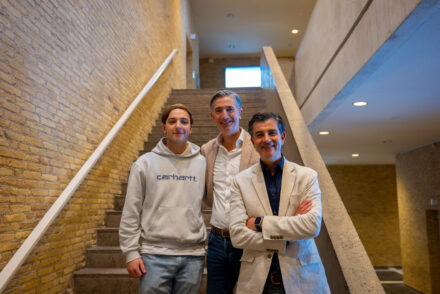Researching revenge, one payback story at a time
Revenge is a universal human desire. But just how universal are the ways we carry out our vengeance? A group of Tilburg University psychologists studied hundreds of real-life revenge acts to find out how we tend to get back at those who have wronged us.
When others hurt us, we seem to be hard-wired to want revenge. Psychologists have long studied what drives the human desire for revenge, which brain regions are involved in revenge-plotting, how vengeance affects the person carrying it out, and how revenge works in lab-controlled experiments. But in the field of revenge research, one big mystery remains: what does real-world vengeance—outside the laboratory—typically look like?
Lab versus life
To find out, Tilburg University psychologists surveyed more than 1,700 people about their experiences with revenge-taking. Hundreds of them indicated that they had taken revenge at least once in their lives. The researchers asked participants to describe their revenge act, as well as the offense for which they sought retribution.
“People often wait months or years to take revenge”
Based on the payback stories of participants, the Tilburg University researchers came to some surprising conclusions about the characteristics of real-life revenge acts. “We found that real-life revenge acts are different from those in lab experiments,” says social psychologist Maartje Elshout, the lead researcher on the project.
A dish best served cold
Unlike vengeance in the lab, Elshout explains, revenge in the real world is not taken immediately. “In lab experiments, participants are usually offered the chance to take revenge immediately after the provocation. Outside the lab, it often doesn’t work that way. Our study shows that revenge is a much slower process in real-life situations—people often wait months or years to take revenge.”
The study proves that the old saying is true—revenge is a dish best served cold. There could be two simple explanations for this, Elshout says. “The opportunity to take revenge may not present itself immediately in the real world. And, in addition, plotting revenge often takes time.”
Creative payback
Another old saying—an eye for an eye—was found to be untrue by Elshout and her colleagues. Their research shows that people often take something entirely different for an eye.
“Plotting revenge takes time”
“In lab studies, participants are usually given the opportunity to take revenge by doing back what was done to them. The revenge act and the offense preceding it are of the same nature,” Elshout explains. “But that was rarely the case in our study. In real life, people seem to take revenge in more creative ways. Revenge acts resemble the offense in severity, but not in character.”
Examples of revenge acts and offenses
The researchers conclude that revenge in the real world is typically delayed, and of a different nature than the provocation. But aside from those commonly shared characteristics, the revenge acts they analyzed varied widely—from damaging a car to spreading secrets or trying to get someone fired.
The events that triggered the payback of participants vary just as much, Elshout says. “People gave all kinds of reasons for seeking revenge. Bosses who bully, Marktplaats scams, infidelity, slanderous colleagues, physical violence, unfair blame, social exclusion, and so on. I also recall the story about a teacher who gave someone a -3 on an exam.”

Maartje Elshout. Photo: Ben Bergmans
Understanding revenge
Elshout, who wrote her PhD thesis on vengeance at Tilburg University and has since published extensively on the topic, explains why revenge interests her so deeply.
“Revenge acts can have severe consequences. In addition, a revenge act is often not expected by its target. That’s why it’s important to gain a better understanding of revenge. With our research, we try to get a clearer sense of vengeance: what it looks like, how it’s different from other anger-induced behavior, how we can predict and prevent it, etcetera.”
According to Elshout, many interesting research questions remain. “I would like to know more about revenge fantasies, for example,” she says. “Why do people have revenge fantasies? Are those fantasies a way of processing hurtful events, or are fantasizers already plotting the revenge act? Are there different kinds of revenge fantasies, perhaps serving different functions? So there’s still plenty left to research and discover!”







